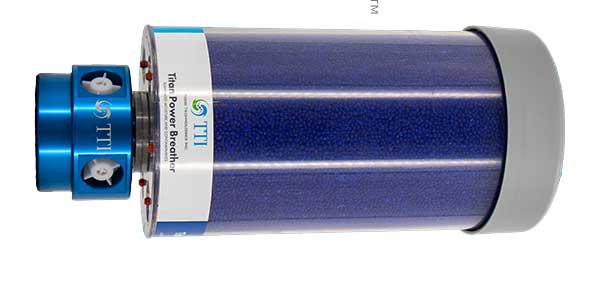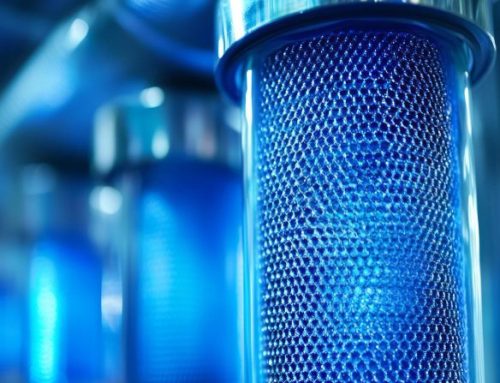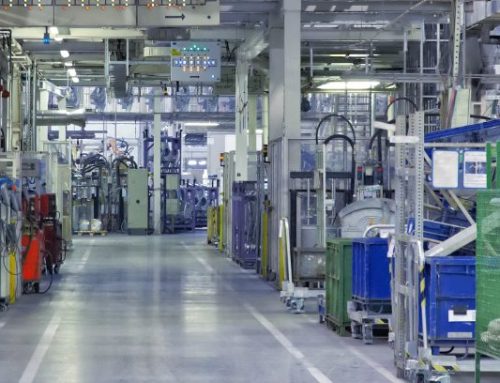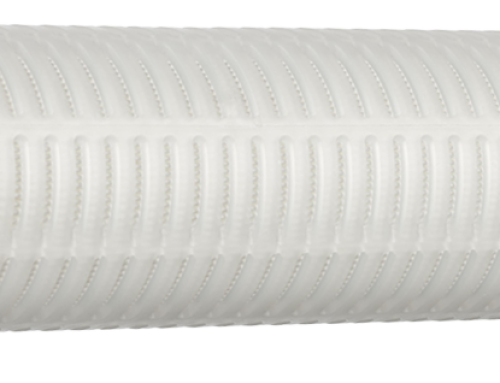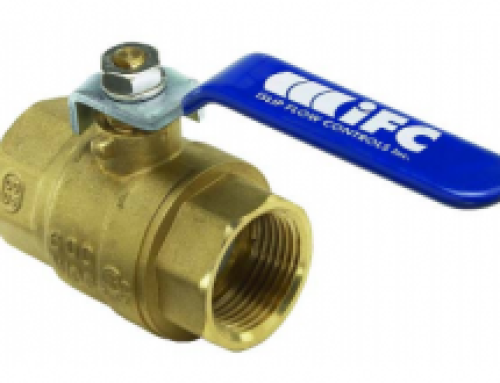If you work with any sort of industrial equipment, you’ve probably heard the term “Power Breather” before. Large-scale machinery, gearboxes, sumps and reservoirs, and other types of production equipment make use of them.
But if you’re not sure what they are or how they work, then you’re in the right place. In this article, the industrial filtration experts at Advanced Filtration will not only go over the basics of Power Breathers, but also we’ll explain why they are an important component for your critical machinery.
What is a Power Breather?
The Power Breather belongs to the family of devices known as desiccant breathers. Desiccants are materials that both attract and hold water molecules–technically known as a hygroscopic substance. Desiccants produce a state of dryness around them, and are commonly found in items we buy regularly. The small packet labeled “Do Not Eat” found inside a pack of beef jerky or a bottle of medication is a desiccant. Another place you commonly see desiccants are new shoes. Basically any product that could be ruined or spoiled by moisture or humidity is likely to ship with some sort of desiccant included.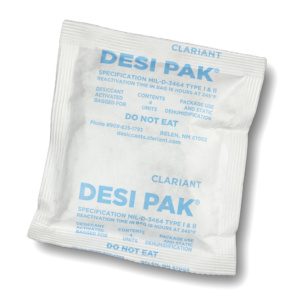
Desiccant breathers are devices installed on a machine that not only perform the anti-moisture function, but also eliminate particles in the air. There are many machines and types of equipment that “breathe” by taking in and expelling air. You’ll see this in pumps, reservoirs, gearboxes, hydraulic systems and the like. Each time equipment breathes, there is the possibility of moisture, dirt and debris coming in with the air. This can lead to contaminating the machine’s lubricant and causing damage over time.
The Titan Power Breather line of products from TTI are among the most well-known desiccant breathers, and they’re among the most highly regarded too. Made to work with a wide range of equipment, the Power Breather stops contaminants at the source, keeping machinery working cleanly and efficiently. Next, let’s look at how they do that.
How do Power Breathers Work?
Power Breathers protect equipment from moisture and air contaminants through a multi-stage process. While the particular Power Breather you choose for your machine may offer more or less features, the initial basic stages are:
- As the equipment inhales, contaminated air enters the Power Breather and goes through an initial solid particle filter. Particles measuring two microns or greater are filtered out at this stage.
- The outside air is dehydrated via a container of silica gel desiccant. Water vapor is thus extracted from the air.
- The outside air passes through a second solid particle filter, located at the bottom of the Power Breather. Particles two microns or greater are again filtered at this stage.
Then as the machine exhales, air travels through the Power Breather in reverse or, depending on the design of the particular Power Breather in use, air may be purged directly into the atmosphere.
Silica gel desiccants will start to change color over time as they become more absorbed with moisture. For example, the gel may start off blue and then turn purple when fully absorbed with water. Different models of Power Breathers may have additional components to extend the life of the desiccant, or the life of the breather itself. Power Breathers with carbon-filled foam filters on the bottom absorb splashing oil and oil vapor, both of which could shorten the lifespan of the silica gel.
Check valves are a commonly implemented way to extend the life of a Power Breather. An intake check valve, for example, will only allow airflow into the Power Breather when the differential pressure between the atmosphere and a fluid reservoir exceeds a certain threshold. Isolation check valves, which keep the desiccant from coming into contact with exhaust air, fumes, and splashing oil, are another feature implemented to lengthen Power Breather life.
Why are Power Breathers Important?
Businesses that depend on machinery for production and profits need to keep their equipment operating efficiently and reliably. Machinery that breathes is particularly prone to moisture and air contaminants, and the Power Breather is an important component for maintaining uptime and reliable operation. Power Breathers filter out moisture and air that is contaminated with debris, keeping machinery running optimally and extending the life of that equipment.
Many businesses that rely on machinery have quality control (QC) requirements for moisture and airborne contaminant levels, and Power Breathers can help ensure those QC goals are met. If equipment is used to manufacture a product that can be negatively impacted by moisture, the Power Breather’s ability to reduce moisture in the manufacturing process can be essential to successful operations.
Find the Right Solution for Your Needs
The equipment you use is surely as unique as your business is. Not all machinery is made the same, but keeping your equipment free of moisture and contaminants is a common concern. TTI makes a wide range of Titan Power Breathers that are tailored to various needs.
Get in touch with Advanced Filtration to discuss your individual needs, and see which Power Breather would be the right choice to extend the life of your equipment. Call us at (732) 901-6676 or fill out the form to the right to get started today!

